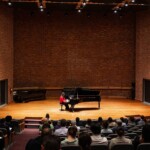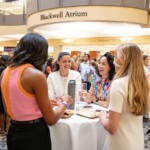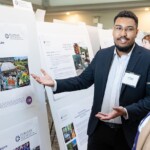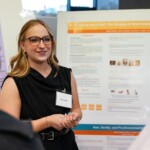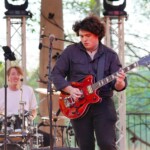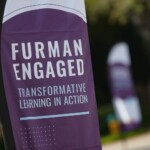Furman Engaged continues to highlight The Furman Advantage
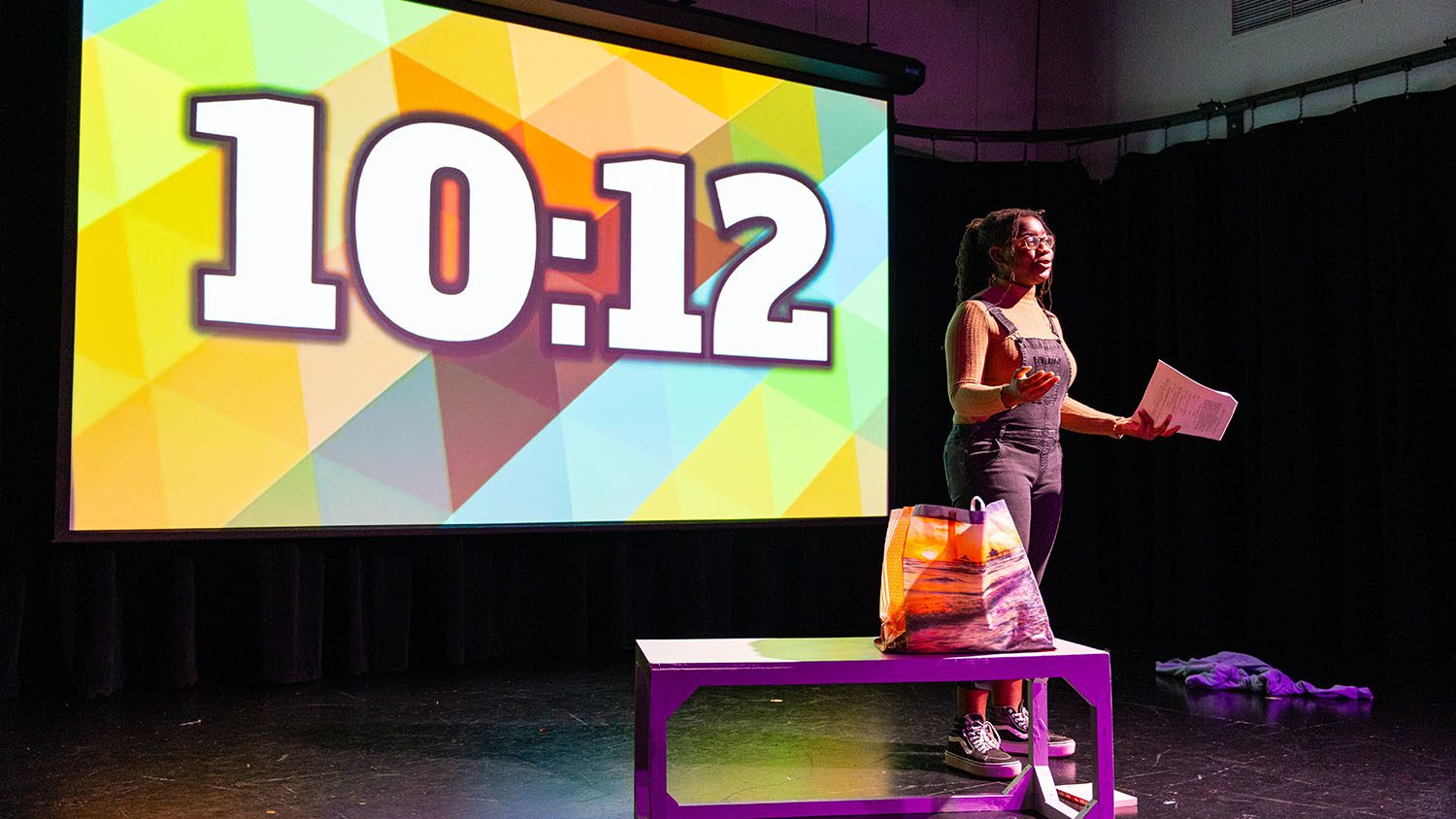
Classrooms on Furman University’s campus buzzed with panel discussions, presentations and performances as students shared what they’ve learned in the 16th annual Furman Engaged.
Furman Engaged, traditionally on a Friday late in the spring semester, is set aside to provide students opportunities to present work they’ve accomplished in engaged learning, a hallmark of The Furman Advantage. Internships, research, study away, writing seminars and musical works were all on display.
The topics ranged from business and accounting internships to piano music of Bohemia, the intersectional class resistance in the book “Bastard out of Carolina” (by Greenville native Dorothy Allison) to cryptological warfare. Furman Engaged wrapped up with the traditional end-of-day celebration followed by the Spring Concert with Teezo Touchdown.
“Our students are inspiring, and Furman Engaged gives them a chance to shine and transcend their positions as students and become experts, sharing their knowledge with the community,” said Beth Pontari, interim provost and vice president for Academic Affairs. “It’s equally inspiring to see our faculty and staff pour so much into making this happen. The entire day is extraordinary.”
This year, a record 689 students participated in 724 sessions that took place across campus. Below the photo gallery are a few snapshots of some of those sessions.
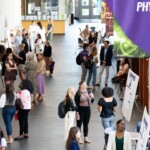
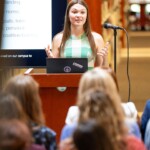
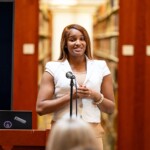
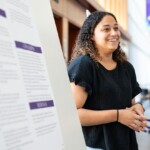
“Unveiling the Spectrum: Examining the Misdiagnosis of Autism Spectrum Disorder in Latino Communities”
Student: Karolin Miranda M’24
Karolin Miranda M’24, a student of the Master of Science in Community Engaged Medicine program, presented research on the underdiagnosis of autism spectrum disorder (ASD) among Latino children. ASD, a neurological condition affecting communication, learning and behavior, requires early diagnosis for optimal development. Yet, Miranda’s findings reveal that Latino children are diagnosed later than their non-Latino peers, a gap she attributes to educational deficits and various systemic and cultural barriers.
Miranda drew on data and studies from regions with large immigrant populations to explore how social determinants of health, such as socioeconomic status, cultural beliefs, and parental education, contribute to this delayed diagnosis. She also spent time at Unity Health on Main, a community center specializing in culturally competent care. “Being in the clinic gave me insight into what was going on,” she noted.
“This was very eye-opening, especially as I come from a Latin background, it makes me sad to know that there are kids who fall under the radar, and that they grow up and still don’t know they have autism,” Miranda said.
To combat these disparities, Miranda advocates for mandatory implicit bias training for healthcare providers, a requirement in only six states. After graduation, Miranda plans to continue her work at Unity Health while applying to medical school, intending to bring her experience into a future medical practice in family medicine or pediatrics.
“The Real Political World in ‘Battlestar Galactica’”
Students: Cooper Kane ’26, Brynne Van Allsburg ’26, Grace Davisson ’25 and William Nix ’27.
Students of Brent Nelsen, the Jane Fishburne Hipp Professor of Politics and International Affairs and director of the Tocqueville Center, examined colonialism and slavery, the war in Sudan, the plight of prisoners or war, hallucinations, and military torture, all themes explored in the critically acclaimed show.
They wrote research papers about geopolitical concerns inspired by the sci-fi drama, which finds humans fighting a race of androids, called Cylons, created by humans (AI, anyone?). Humans torture and abuse the Cylons, especially when they are captives. But one key human, Gaius Baltar, regularly hallucinates a Cylon woman, a condition a student’s research says could be caused by the character’s repeated traumas and chronic insomnia.
“Furman Engaged Queer Histories: San Francisco May Experience 2022”
Students: Ami-Faith Sherer ’24, Dalmondeh Nayreau ’24 and Caroline Brawley ’24
“Community is not and cannot be just one thing,” said Ami Faith Sherer ’24. She was one of a handful of students who traveled to San Francisco in 2022 for a May Experience, learning how to use archives to study the gay community there.
Sherer discovered writings and promotional material that shed light on how gay men found and built community. It wasn’t always easy. There was also conflict within groups and between groups, as writings expressed racism and the inability to build consensus.
There were groups for white men, and separate groups for Black men, and Dalmondeh Nayreau ’24 explored information about Asian and Pacific Islander men.
But, Sherer asked, where were the groups for gay women?
Carolina Brawley ’24 researched snapshot photos from the 1970s and 1980s of gay men – with their families, friends and cats. She realized one difficulty about archival research: She got bored. She spent time “finding what I enjoyed learning about and looking at and thinking about. What held my interest.”
“First Year Workshop. Contemporary Issues in Film; ‘Thelma and Louise’ Reconsidered”
Student: Catherine Farr ’26
For students born in the 21st Century who grew up in the “Me Too” era, a movie from the 1990s that deals with sexual assault and gender norms could seem old fashioned or trite.
But Catherine Farr ’26 took another look at “Thelma and Louise,” the hit move released in 1991, and found it groundbreaking.
“In the 1990s, a feminist message was distressing,” Farr said. “It marked a shift in notions of social dynamics and gender, aided in a more feminist society.”
“Thelma and Louise” played the tropes of a road movie and a buddy movie, and elements of an on-the-run movie, but its rebellious spirit was “distinctly unique,” Farr said.
When Louise (spoiler alert) killed a man who was trying to rape Thelma, the women were freed of a lot of norms that previously shackled them. They start living more dangerously.
The end of the film, where (another spoiler alert) Thelma and Louise drive off a cliff, presumably to their deaths, might not be as clear cut as it seems, noted English Professor Willard Pate. Like in the movie “Butch Cassidy and the Sundance Kid,” she said, viewers don’t see the heroes or heroines die. Maybe, she said, they lived, they continue, and they’re still making a point for feminism.
A Year with The Shi Institute’s Student Sustainability Fellows
Students: Anna Timbes ’26, Kerry Black ’24, Will James ’26, Ellie Howard ’25, Stella Frisbie ’25, Molly McCutcheon ’24, Victoria Bostrom ’24, Andres Ospina ’24, Marie Cecil ’24, Summer Marsden ’25 and Reagan Ogburn ’24
Eleven students shared their experiences tackling sustainability issues on the Furman campus over the last eight months through The Shi Institute’s Student Sustainability Fellows program. From alternative transportation solutions to recycling and compost, to communications and data visualization, each student brought a unique perspective to the table.
Joy Baker, associate director of sustainability programs at The Shi Institute, emphasized the significance of the collective, noting, “This group of students represents a significant diversity of interests, but they are all united in their care for sustainability.” The common commitment to sustainability underscores the importance of collaborative efforts in addressing environmental challenges.
Recycling Life into Fuel
In the quest for sustainability, Furman students are turning challenges into opportunities. In “Recycling Life into Fuel,” Anna Timbes ’26, Kerry Black ’24, and Will James ’26 unravel the complexities of the Furman waste stream, showcasing approaches to transform campus sustainability. James underscored the importance of Furman’s closed-loop compost system, which converts campus food waste into thriving crops. “It’s something special and worthy of pride in our sustainability initiatives at Furman,” he said.
Sustainability Advocacy Through Education
In “Sustainability Advocacy Through Education,” Ellie Howard ’25, Stella Frisbie ’25, Molly McCutcheon ’24, Victoria Bostrom ’24 and Andres Ospina ’24 unveiled their ongoing efforts to promote sustainability within Furman’s campus and the broader Greenville community. Among the advocates, Howard stood out for her dedication to advancing alternative transportation solutions aimed at alleviating campus traffic. Collaborating with the Furman University Police Department revealed a consistent influx of 300-400 cars brought in by freshmen each year. “We know there’s a demand,” Ellie explained, underscoring the need to expand the biking program to address this issue. To ensure sustainability, they have developed a business model to maintain the bikes and are currently advocating for funds to keep the program going.
Visualizing Sustainable Solutions
In a session brimming with innovation and ambition, Marie Cecil ’24, Summer Marsden ’25 and Reagan Ogburn ’24 unveiled their journey in large-scale data collection and how they use it to propel sustainability. Marsden, the climate assessment fellow, shed light on the pivotal role of her position in developing and implementing Furman’s new Climate Action Plan. “Furman actually created their original climate action plan back in 2007, with the goal of being carbon neutral by 2026,” she explained. “We’ve made a lot of progress, but not enough,” underscoring the need for continuous evaluation and revision to further reduce greenhouse gas emissions and consumption, urging the entire campus community to participate in this critical endeavor.
The Riley Institute Advance Team: Events, Activities, & Polarization Survey Results
Students: Lilly Meyer ’24, Alex Aradas ’26, Ella Chesney ’26, Caitlin Duffey ’25, William Jepson ’26 and Emily Megna ’25
The Advance Team, a group of students dedicated to policy change, embodies the spirit of civil discourse. “The Riley Institute is such a special place because Riley is a place where we don’t shut down any ideas, we engage in civil debate,” Emily Megna ’25 said.
Their proactive engagement in the Riley Institute’s events and programs led to hosting speakers, including their own CLP event, “A Woman’s Place: A Conversation with Former South Carolina Supreme Court Justice Kaye Hearn,” fostering dialogue on campus and addressing specific issues or topics of interest within the Furman community. Reflecting on their experiences, one student said, “It’s a great experience because I get to meet people I otherwise probably never would have met.”
Lilly Meyer ’24 and Alex Aradas ’26 delved into their analysis of a polarization survey conducted during the spring 2024 semester. Their goal was to gauge the political climate at Furman, comparing perceived polarization with actual data. During the session, students critically examined the survey’s results, highlighting its limitations and drawing comparisons between the 2020 and 2024 surveys.
